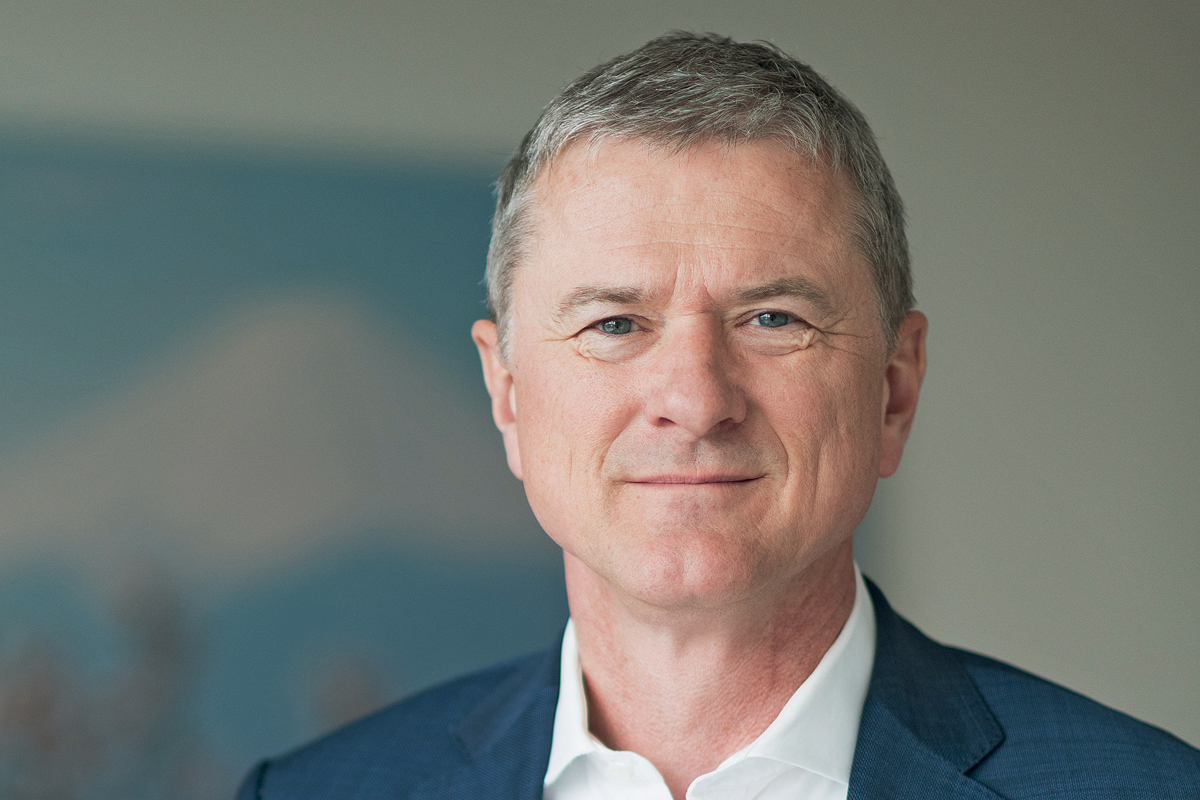With a PhD in experimental pharmacology, Dirk Kosche, President of Established Markets for Japanese pharmaceutical company Astellas Pharma, says what drives him most is the possibility of finding cures for currently incurable diseases – and ultimately making a difference to improve people’s lives. “I studied pharmacology and neuroscience before I went into the pharmaceutical industry so I have a deep interest in science and medicine,” German-born Dirk tells The CEO Magazine.

“On a personal note, my mother died of cancer. I am driven by anything that is innovative in this area, ultimately to find a cure for illnesses that we can’t currently cure. My hope is that, in the future, by ‘following the science’, we will be able to develop medicines that may help to ease this burden.”
Formed from the 2005 merger of two Japanese pharmaceutical heavyweights, Yamanouchi and Fujisawa, Astellas Pharma is among the top pharmaceutical companies in the world, with 1,306,348 million Yen (€10.8 billion) in estimated revenue annually (based on 2018 financial results). As of 2018, the company employs more than 16,000 people across the globe.
Mainly engaged in the research, development, manufacturing and sales of prescription-only medicines (POM), Astellas Pharma’s heritage lies in urology, transplantation and oncology.
However, their medicine portfolio is diverse, as the company is committed to an agile approach, which sees it investing in early cutting-edge science and the subsequent development of medicines with the aim to truly answer the unmet medical needs of people around the world. This includes researching and developing treatments for rare conditions.
“We are in the fortunate situation where we were able to invest in the development of a medicine for a very rare but devastating form of cancer,” Dirk explains. “Globally, there are not many patients who are affected by rare cancers; for those who are, it’s a devastating disease. Being able to discover these new medicines with the possibility to make a difference to patients’ lives is what drives us.”
Although not a big market, the company decided to fast-track this development because of the high unmet need among this particular group of patients.
“I am driven by anything that is innovative in this area, ultimately to find a cure for illnesses that we can’t currently cure.”
“I think it’s a sign of the company’s vision to pursue new medicines, even if there might not be such a big opportunity with regards to numbers of patients,” says Dirk. “It’s something we take very seriously, because for those patients who are affected, it really makes a difference.”
Besides developing new medicines, raising awareness of the importance of early detection in cancers is a prime focus for the company. “Prostate cancer is the most common cancer in men, for example, but has been shown to receive less than a third of the media coverage that breast cancer gets,” says Dirk. “We want to emulate these successful campaigns for prostate cancer with the aim of improving survival rates.
“We know that early detection is so important. Patients can respond well to treatment if their disease has been caught at an early stage.”
Based in London and overseeing European, Canadian, Australian and New Zealand operations, Dirk joined the Astellas Pharma team in July 2018 after 17 years with Swiss healthcare giant Novartis. Before that, he was with Merck Sharp & Dohme.
“All of those companies are very active in research and innovation. So, that’s the part that really motivates me, because it’s a unique industry in that sense. In the end, the task is to find new treatments – you know, to help,” he says.
Having been brought in to head up Novartis’ Japanese subsidiary in 2014 and based in Tokyo, Dirk is no stranger to the workplace culture of his new employer – referred to internally as ‘the Astellas Way’.
“There is a great sense of teamwork and collaboration in Japan and this is also something I really appreciate at Astellas,” he says. “I like to think I’m a collaborative leader. I try to bring out the best in my teams and my colleagues – I constantly try to see how I can support their successes.
“In the wider sense, the mix of being agile and a smaller company that is research-focused makes us good partners for medical experts in their respective fields. It also allows us to have a very collaborative and open company culture where we invite everyone to participate and contribute to how we work together.”


